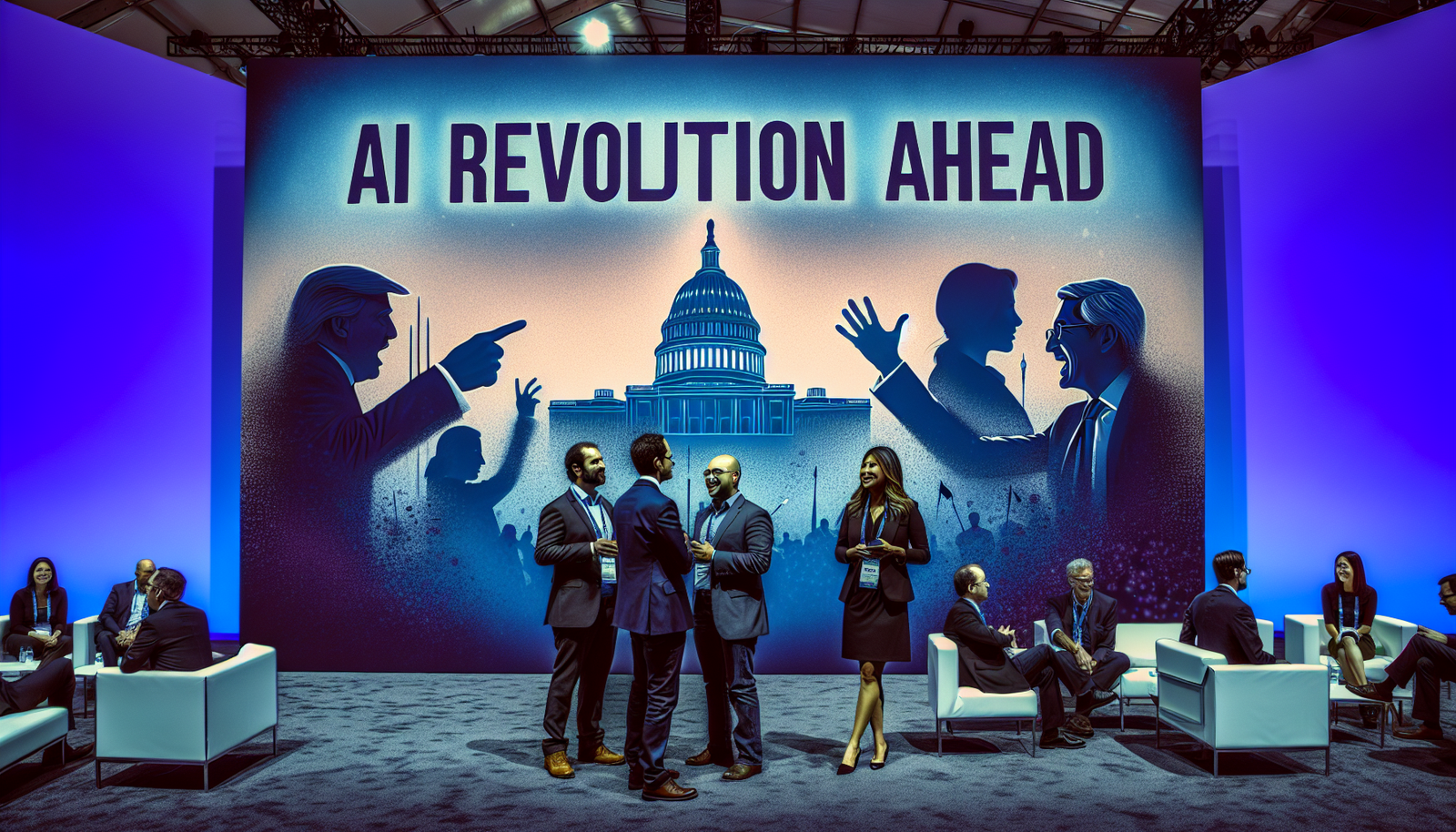The technology giants are about to undergo an *unprecedented transformation* as the AI revolution redefines the digital landscape. The prospect of a second Trump term raises questions about *antitrust regulations* and their implications for technological innovation. The dawn of a new era could *allow for unprecedented flexibility*, facilitating the development of algorithms. The stakes involve the ability of large companies to navigate a changing legal framework while meeting increasing societal expectations regarding *responsibility* and ethics.
Preparations of the Tech Giants
The major technology companies are busy under the shadow of a potential re-election of Donald Trump in 2024. The prospect of a Trump 2.0 administration evokes expectations among leaders who envision a new economic environment. The loosening of antitrust laws could provide unprecedented opportunities for the expansion of digital giants.
Internal discussions at companies like Meta, Microsoft, and Alphabet highlight the anticipation surrounding this potential revolution in artificial intelligence (AI). Technological advancements could accelerate, making innovation even more prominent in their business strategy.
Regulations and Consequences
Such an administration could lead to a relaxation of antitrust regulations. Legislators previously imposed stricter standards in the United States and Europe, complicating mergers and acquisitions. A return to a more lenient approach beneficial to companies would allow for large-scale consolidations.
European regulators are closely monitoring these developments, as a deregulation as anticipated could suspend their efforts to regulate the digital market. Expectations regarding U.S. political entities are already changing multinational strategies in the face of global competition.
Impact on Innovation and AI
The scope of AI is expected to broaden due to the adoption of innovative technologies. Companies are focusing on solutions aimed at automating processes, thereby increasing productivity. AI will be integrated across various sectors, from healthcare to education, generating promising dynamics.
Recent reports indicate that AI could transform the way companies interact with their customers. Algorithms are becoming increasingly sophisticated, learning from human behaviors, thus enabling large-scale personalization.
Consequences for SMEs and Startups
The landscape of small and medium-sized enterprises (SMEs) could be drastically altered in this era of relaxed standards. The absence of regulatory barriers would facilitate the entry of large companies into markets previously dominated by smaller players. This would make their survival difficult in the face of increased competition.
On the other hand, this evolution could stimulate partnerships between technology giants and innovative startups. Networking and resource sharing would become essential to leverage AI, while ensuring the sustainability of new businesses.
Reactions from Investors and the Public Sector
Investors are eager to seize the opportunities that such deregulation could bring. The flow of capital toward AI-focused companies will increase to meet growing demand. Analysts are closely monitoring market movements, anticipating significant increases in valuations.
The public sector, for its part, may be forced to adapt to this new ecosystem. Ethical issues surrounding AI require deep reflection on regulatory mechanisms. Increased social responsibility could emerge to ensure that innovations do not compromise individual rights.
Long-term Forecasts
The emerging dynamics present an relentless character. The effects of a permissive administration on the market could mark the beginning of an era where innovation prevails over regulation. This perspective amplifies the debates over governance of AI technologies and their impact on society.
The focus on modernizing infrastructure and data systems could catalyze a true technological revolution. The ability of companies to adapt to this evolution will become a determining factor for their future.
The course of technological history shows that revolutions occur at the very heart of innovation. In this context, the willingness to seize every opportunity will be the hallmark of future successes or failures for technology companies.
Frequently Asked Questions about the AI Revolution and Antitrust Laws
What impact will a potential Trump 2.0 term have on antitrust regulations concerning technology giants?
A Trump 2.0 term could lead to a loosening of antitrust laws, allowing large technology companies to consolidate their power, reduce competition, and pursue more aggressive mergers and acquisitions.
Will the tech giants benefit from a new regulatory framework regarding artificial intelligence?
Yes, with a pro-business term, tech giants are likely to benefit from more relaxed regulations, facilitating innovation and the adoption of AI without significant interventions from regulators.
How are tech companies preparing for this AI revolution?
Companies are heavily investing in AI research and development, recruiting specialized talent, and creating partnerships with startups to use AI in their operations and services.
What could be the consequences of a relaxation of antitrust laws for consumers?
A relaxation of antitrust laws could lead to fewer choices for consumers, higher prices, and a decrease in innovations, as large companies might not feel the pressure of competition.
Will ethical concerns around AI be neglected under a Trump 2.0 term?
There is a risk that ethical concerns will take a backseat to growth and competitiveness, with a focus on accelerating technological development rather than ethical regulation.
Which sectors could be most affected by an AI revolution and a decrease in antitrust regulations?
Sectors like finance, healthcare, transportation, and media could undergo significant transformations due to AI, while the reduction of regulations could also favor mergers between companies in these areas.
What strategies might tech companies use to circumvent current regulations?
Companies may adopt complicated structures to mask their actual size, use startups to test innovations, and lobby legislators for a loosening of standards.
How can citizens influence AI regulation and antitrust policies?
Citizens can influence these regulations by participating in awareness campaigns, voting for candidates who support strict policies, and raising their voices on public platforms.






